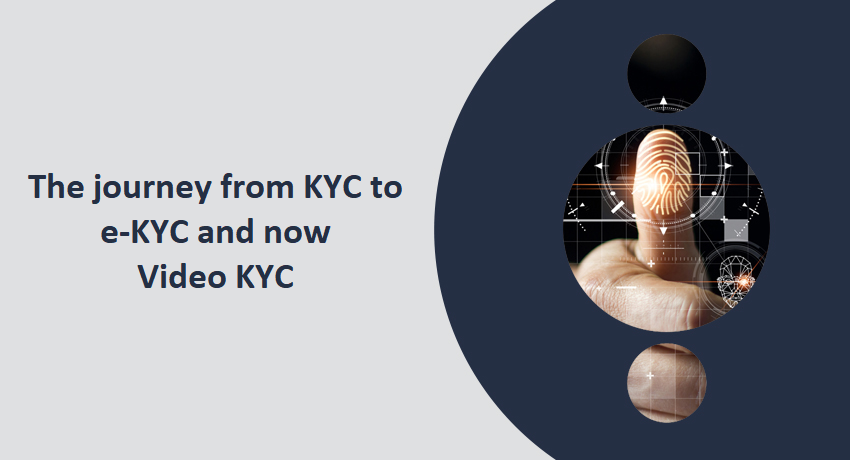The journey from KYC to e-KYC and now Video KYC

The Know Your Customer (KYC) policy is a mandatory framework for the financial ecosystem used for the customer identification process. To comply with international regulations, Know Your Customer procedures need to be implemented in the first stage of any business relationship when enrolling a new customer.
Primitively, KYC was an in-person inspection process but with time and increasing demand, regulatory bodies and financial institutions together had to conceive ways of innovating the said facet to ensure an enhanced customer experience. e-KYC was introduced to serve this very reason in conjunction with easing and shortening time-consuming processes.
Video KYC, recently approved by RBI, is a new technique to verify your customers through video. The entire process is video-driven and contactless giving customers the option of completing the process remotely. Video-based Customer Identification Process (V-CIP) was launched to go entirely paperless. The verifier authenticates the documents and does a liveliness check along with establishing the location of the person virtually, unlike the traditional KYC method.
Indian Bank is the first in India to welcome this transformation. They allow customers to open a bank account with them from anywhere by incorporating V-CIP into their web-based platforms. To begin with, they have implemented this strategy for customers opening a savings account only. By providing standard documents and ensuring they have video and audio facilities on their gadgets, customers will have the ease of opening an account, receiving cheques book, plastic cards, etc. without having to step out.
Similarly, IDBI Bank also announced the launch of periodic KYC updates through V-CIP. With the increasing demand for ease of service, more banks are resorting to such innovations and technologies.
5 Indian companies that successfully deployed Video KYC solutions
1. Kotak
2. SBI Card
3. ICICI
4. Yes Bank
5. Capital Float
Does the future seem beneficial?
With India’s top banks welcoming this innovation, the question arises- Is this a beneficial proposition in the long run?
1. From a customer’s point of view, V-CIP will ensure ease while onboarding. Customers who reside in rural areas can easily associate with banks through their mobile phones, also propagating financial inclusion.
2. Interactions and customer proof can be stored in the cloud for future references without the hassle of maintaining paper files.
3. Video KYC will allow real-time customer verification using facial matching, automated data extraction and machine learning techniques which will enhance customer recognition.
4. Artificial Intelligence propagated analysis and products will allow wider and deeper penetration options.
Certain touchpoints like onboarding of HNI clients will always require human intervention but to a large extent adoption of video KYC will allow financial institutions to reduce their branches thereby providing them the option to invest in a better customer experience.

